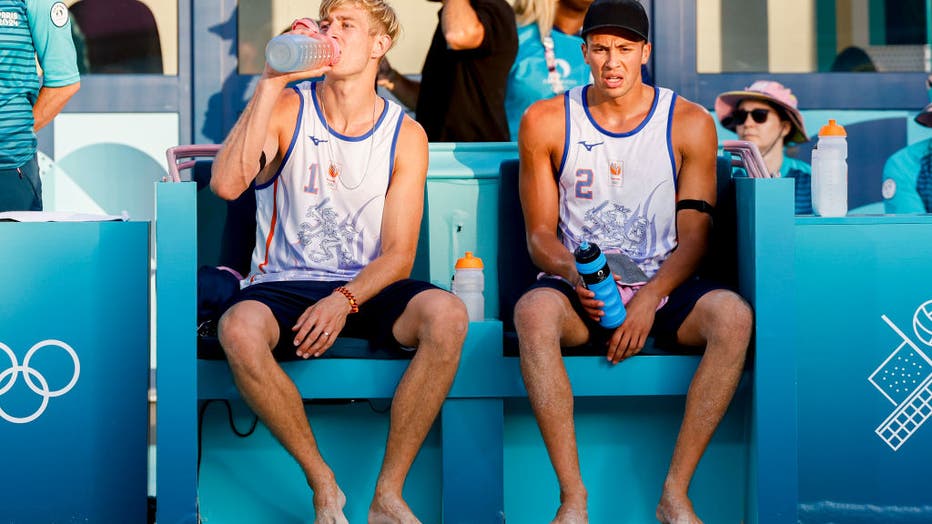Dutch beach volleyball player convicted of rape continues to get booed by Olympics fans

Steven van de Velde of Team Netherlands looks on during a Men's Preliminary Phase match on day seven of the Olympic Games Paris 2024 at Eiffel Tower Stadium on August 02, 2024 in Paris, France.
Steven van de Velde, a Dutch beach volleyball player, is facing intense backlash at the Paris Olympics due to his criminal past.
Van de Velde, who served 13 months in prison after being convicted of raping a 12-year-old girl in England in 2016, has sparked widespread outrage. Despite calls for his ban, the International Olympic Committee (IOC) allowed him to compete, leading to significant public and media scrutiny.
Who is Steven van de Velde and why is he controversial?
Steven van de Velde is a Dutch beach volleyball player who gained notoriety due to his 2016 conviction for raping a 12-year-old girl in England.
After serving 13 months in prison, Van de Velde returned to professional volleyball and qualified for the Paris Olympics, sparking outrage among victims' advocates, lawmakers, and fans who believe he should be banned from the games.
How has the crowd reacted to Steven van de Velde at the Olympics?
The crowd's reaction to Van de Velde at the Paris Olympics has been overwhelmingly negative.
During his second match, Van de Velde and his teammate Matthew Immers were met with intense jeering, especially when Van de Velde made a play. The reception was harsher compared to their first match, which received a mix of boos and cheers.
This negative reaction underscores the public's disapproval of Van de Velde's participation in the Olympics.
What has the IOC said about Steven van de Velde's participation?
The International Olympic Committee (IOC) has stated that it cannot prevent the Netherlands from sending an athlete who has qualified through the usual channels, despite the athlete's criminal past.
This position has fueled the debate on whether individuals with criminal convictions should be allowed to compete in high-profile events like the Olympics.
How have Van de Velde's teammates responded?
Matthew Immers, Van de Velde's teammate, expressed disappointment with the crowd's reaction but emphasized his commitment to playing alongside Van de Velde.
"I cannot do anything about his past anymore. I’m here to play with him," Immers stated. He highlighted the importance of mental strength and mutual support to overcome the challenging reception they have faced.

Steven van de Velde of the Netherlands and Mathew Immers of the Netherlands during the Men's Beach Volleyball Pool B match between Norway and Netherlands on Day 7 of the Olympic Games Paris 2024 at Eiffel Tower Stadium on August 2, 2024 in Paris, Fra
Has Steven van de Velde addressed the media about the backlash?
Following the backlash, Van de Velde has avoided the media. After their second match, he did not walk through the mix zone to address the media, which is typically required of athletes.
Dutch media liaison Hans Nieuwenburg noted that Van de Velde had already spoken to the media after their opening match loss to Italy and requested that Immers only answer sports-related questions during his media interaction.
Despite the negative reception, Van de Velde and Immers are focused on their performance. Immers acknowledged the support from Dutch fans and expressed their commitment to achieving good results in the tournament.
He emphasized that they are playing for the supporters who still believe in them and for their love of the sport.
What are the broader implications of Van de Velde's participation in the Olympics?
Van de Velde's participation raises critical questions about the eligibility of athletes with criminal backgrounds in international competitions.
It also highlights the challenges organizations like the IOC face in balancing qualification criteria with ethical considerations. The ongoing controversy may prompt further discussions on policies and regulations regarding athlete eligibility in future events.
The Associated Press contributed to this story. It was reported from Los Angeles.

